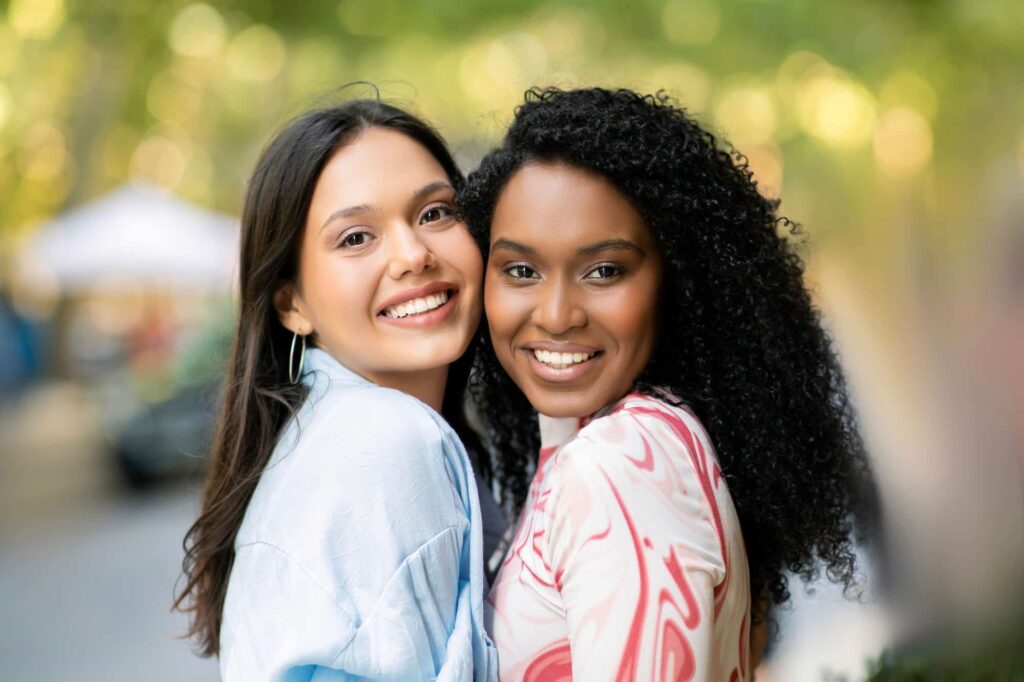Falling in love with your best friend is one of the most emotionally complex experiences you can face. On one hand, you have someone who knows you better than almost anyone. Someone you trust, laugh with, and rely on. On the other, admitting romantic feelings could change everything, and not always for the better.
If you’re wrestling with these emotions, know that you’re not alone. Many lifelong romantic relationships begin as friendships, but navigating this transition requires thoughtfulness, patience, and emotional honesty. Here’s how to handle falling for your best friend without destroying the bond you cherish.
Falling in love with your best friend can be agonizing. Here’s how to process it, survive it, and protect the bond even if it never becomes romantic.
Step I. Is it love that you’re feeling? Or loneliness?
Falling in love with your best friend feels a lot like being stuck in some emotional limbo. You know everything about them. You’ve shared inside jokes, grief, late-night confessions. Maybe you grew up together. And now, suddenly, you’re wondering if a lingering hug or a loaded look meant something more.
You replay every conversation. You overanalyze every text. You question your own sanity: “Am I making this up? Is this just loneliness?” But neuroscience, social psychology, and thousands of readers have said the same thing: falling in love with your best friend is a deeply human experience. This often involves a shift in emotional and cognitive processing as individuals experience friendship-based intimacy as their attraction for one another increases and the desire to spend more time together (Stinson et al. 2021).
Step II. Emotional Intensity Isn’t Always a Sign You Should Confess
A reader who described themselves as “romantically self-aware but risk-averse” said, “It feels like we’re dating but without the safety of knowing they feel the same.” This kind of emotional intensity is common when falling in love with your best friend. But it doesn’t automatically mean you need to tell them. Emotional clarity is more useful than emotional urgency.
Ask yourself: Is this a pattern? Have you confused closeness for romance before? Are you needing something they’re uniquely providing that you’re missing elsewhere? Would expressing your feelings deepen the connection or destabilize it?
There’s no one-size-fits-all answer. But don’t confuse moral pressure (“I should be honest”) with genuine readiness to risk the stability of your friendship.
Step III. Platonic Love and Romantic Desire Are Hard to Separate
When you’re falling in love with your best friend, you might think you’re feeling something new. In reality, you’re noticing what’s always been there: emotional intimacy, shared history, a sense of mutual care. The only new ingredient might be scarcity of the time spent together. Especially if they’re seeing someone new, pulling away, or showing signs of emotional unavailability.
A reader who had loved their friend for at least 15 years said, “We never kissed, but losing him [after telling him everything] felt worse than any other breakup. I had to grieve it like we’d been together.”
That kind of grief reveals how deeply we undervalue friendship as a form of attachment. Falling in love with your best friend hurts because we’ve never been taught how to handle ambiguous closeness. We’re taught that love must be romantic, sexual, or nothing at all. That’s why these feelings are so destabilizing.
Step IV. Confessing Is Risky—But So Is Silence

A reader wrote, “Every time I see him date someone else, I get resentful. But I have no right to be. I’m just the best friend.” Resenting your best friend for living their life and building a romantic partnership is an emotional trap. Silencing feelings may protect the relationship, but it could erode your internal peace.
Over time, unspoken love starts to feel like emotional self-abandonment. You begin filtering your joy, your jealousy, your hopes just to maintain the friendship status quo. If you’re falling in love with your best friend, ask yourself and an objective party (therapist or other friends): Can I continue this closeness without emotional compromise? What would I regret more: telling them or staying silent? Is my love conditional on their response?
Sometimes confessing is less about getting what you want and more about aligning with what you feel. It can be a relief to say what is in your heart and mind, “This is where I’m at. I don’t expect anything, but I need you to know.”
Step V. If It Doesn’t Turn Romantic, It’s Still Real Love
There’s a myth that falling in love with your best friend only counts if it becomes a relationship. But emotional reality doesn’t need romantic validation. The love was real even if the romantic feelings were not mutual. The intimacy existed even if it didn’t evolve into dating.
In fact, some of the deepest heartbreak comes not from rejection, but from the emotional whiplash of staying close while pretending your feelings don’t exist. A reader described this perfectly: “I helped her move. I met her parents. I listened to her talk about other guys. She never knew I loved her. And that will always hurt a little.” This pain deserves space. Let yourself grieve the version of you that hoped there was more to the story. This is the kind of closure that requires you to be honest with yourself.
Step VI. What to Do Next If Your Friend Doesn’t Love You Back
Falling in love with your best friend isn’t a failure of boundaries or logic. You and your friend had a very deep connection. But once you name it, you do have to choose what the next stage of friendship will be. The choice is between clarity and confusion. Talk about it with your friend.
You can stay close, but only when you’re emotionally regulated. You can confess, but only if you’re ready for any outcome. Or you can step back and away, if peace requires space. Whichever path you take, know that you’re not weak for falling in love with your best friend. You clearly know that they’re awesome and they’re friends with you. So, that means you’re just as special. Even if your relationship never becomes more than a beautiful platonic relationship, you’ll survive it and you’ll grow because of it.
Conclusion
Writing this reminded me of the Lionel Richie song, “Stuck On You.” Beautiful song about falling in love with a friend. Falling in love with your best friend is a quiet crisis no one prepares you for. It’s even a topic that is rarely discussed in the literature. Much like this song and its cover by Dave Fenley It’s the slow ache of wanting more from someone who already gives you so much but they may or may not feel the same way about you romantically. And whether you say something or don’t and whether they feel the same or not, this experience will shape you. But it doesn’t have to break you.
When you listen to your feelings, treat yourself with compassion, and honor your friendship for what it is…LOVE.
Explore More on Just Stop Dating:
Are you interested in writing for Just Stop Dating? Contact us and email our team!











